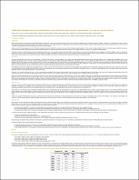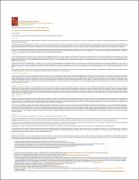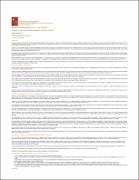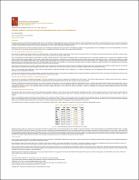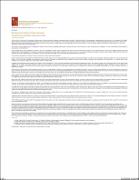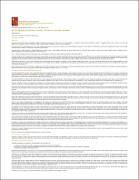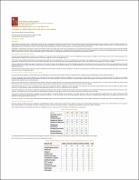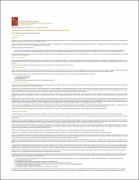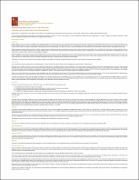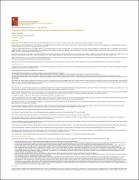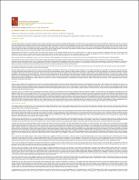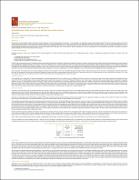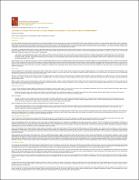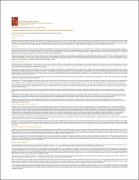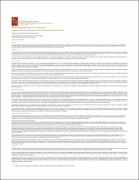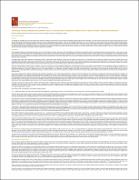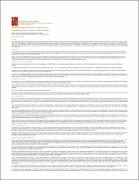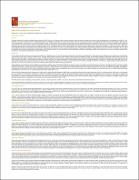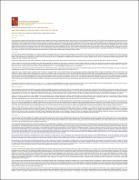Browsing Faculty of Health Science by Issue Date
Now showing items 1-20 of 227
-
Competing Demands and Limited Resources in the Context of War, Poverty and Disease: the Case of Lacor Hospital
(Uganda Martyrs University, Department of Health Sciences, 2003)Difficult choices have to be made among competing demands for health care in the context of severely limited resources and persistent humanitarian crisis prevailing in Northern Uganda. In particular, the challenge of a ... -
All That Glitters is Not “Macroeconomics”
(Uganda Martyrs University, Department of Health Sciences, 2003-12)Despite many problems, the Report on Macroeconomics and Health is an important document. It re-launches the role of the WHO, which in itself is a good thing, as the WHO is an organisation potentially more independent and ... -
Health Workers Demand for Better Pay
(Uganda Martyrs University, Department of Health Sciences, 2003-12)hough the recent health reforms which include decentralisation of health services and creation of ‘minihospitals’ at every sub-county indicate that Government is committed to improving the state of health services in this ... -
Unrest Over Health Sector Remuneration: What is the Problem?
(Uganda Martyrs University, Department of Health Sciences, 2003-12)Employee unrest over remuneration in the Ugandan health sector is an old problem. Although salaries have been increasing since 1990, the country has witnessed more strikes in this period than before. In fact, one has the ... -
Building Social Capital for Health Information
(Uganda Martyrs University, Department of Health Sciences, 2003-12)The concept of “social capital” has been re-engineered to reflect the level and use of knowledge within society. It includes the extent to which society can create, innovate and use knowledge. This new understanding of ... -
Health Inequalities Within a Nation: a Review of Two New Theories
(Uganda Martyrs University, Department of Health Sciences, 2003-12)What policies and values influence inequalities of health of individuals and populations? There are two main interpretations: a “materialist”, and “psycho-social” (Coburn D, 2000). It is suggested that the more a regime ... -
A Review of Human Resource for Health in Uganda
(Uganda Martyrs University, Department of Health Sciences, 2003-12)The importance of human resources in health systems needs not to be over-emphasised. Expenditure on health workers forms a significant proportion of total health expenditure in many countries. In order to effectively ... -
How Should Doctors Be Paid? Lessons From Theory and Practice
(Uganda Martyrs University, Department of Health Sciences, 2003-12)For long now, doctors in Uganda have been complaining that their terms of service, particularly remuneration, are not commensurate with the years that they spend training and the amount of work that they do. This issue has ... -
Costing Health Services in Lacor Hospital
(Uganda Martyrs University, Department of Health Sciences, 2003-12)Health institutions all over the world are troubled by the intractable problems of shrinking resources and increasing demands for good quality services. Private-Not-For-Profit (PNFP) health units face even more serious ... -
Selective Salary Reward for Health Workers: Realistic or a Distortion?
(Uganda Martyrs University, Department of Health Sciences, 2003-12)Uganda’s civil service is perhaps one of those with some of the lowest salaries in the world. This has remained the case in spite of improvements in the pay package over the last decade. Staff working in the delivery of ... -
Economic Impact of Lacor Hospital on the Surrounding Area
(Uganda Martyrs University, Department of Health Sciences, 2003-12)The health care industry is an important contributor to the economy, especially to that of the area surrounding health institutions. This effect is even more marked in the case of rural facilities. At national level, it ... -
International Trade and Health: Before and After CANCUN
(Uganda Martyrs University, Department of Health Sciences, 2003-12)International trade is potentially critical in stimulating increased production, economic growth and poverty reduction. For this potential to be achieved, transparent and equitable international rules are necessary together ... -
Listening to Voices That Matter: Placing Women’s Concerns at the Core of Health Programmes
(Uganda Martyrs University, Department of Health Sciences, 2003-12)One of the hallmark achievements in the world today is the increasing recognition that the health of women is central in the development process. Many individuals, governments, non-governmental organizations (NGOs), ... -
Comparison of tympanic and rectal thermometry: Diagnosis of neonatal hypothermia in Uganda
(Elsevier, 2004-01-01)Although newborn body temperature monitoring is not a routine occurrence in labour wards in Uganda, postnatal hypothermia is a significant problem. This study was undertaken to find a convenient and accurate method of ... -
Uganda’s Minimum Health Care Package: Rationing Within the Minimum?
(Uganda Martyrs University, Department of Health Sciences, 2004-04)Essential/minimum health care packages (MHCP) have appeared on the primary health care scene as a means of setting priorities for national health budgets. A technical approach of cost-effectiveness was sought to guide the ... -
Primary Health Care and Health Sector Reforms in Uganda
(Uganda Martyrs University, Department of Health Sciences, 2004-04)The health system in Uganda has undergone a number of changes since independence in 1962 and the PHC concept as a timely innovation, and very welcome in Uganda. And also as a response to the global economic decline of the ... -
Financing the Millennium Development Goals: Is More Public Spending the Best Way to Meet Poverty Reduction Targets?
(Uganda Martyrs University, Department of Health Sciences, 2004-04)The strategy for expanding public services through donor funding is flawed and is doomed to fail. Donor funding necessitates increased internal public expenditure. This shifts resources away from the export-oriented private ... -
The Bamako Initiative Was Not About Money
(Uganda Martyrs University, Department of Health Sciences, 2004-04)The Bamako Initiative (BI) was a pragmatic strategy to implement primary health care (PHC) in the era of economic structural adjustment. Championed by UNICEF’s charismatic leader, James Grant, it sought to fill the gap ... -
AIDS, Primary Health Care and Poverty
(Uganda Martyrs University, Department of Health Sciences, 2004-04)This paper analyzes the complex interrelation between poverty and AIDS. Poverty, in its many and diverse aspects and with its many and diverse consequences, creates a fertile breeding ground for the expansion of HIV/AIDS. ... -
ARV Treatment in Poor Settings: the State of the Art
(Uganda Martyrs University, Department of Health Sciences, 2004-04)Universal access to antiretroviral drugs (ARVs) has created enormous debate and controversy in developing countries. But it seems to be a more feasible prospect by the day. Prices of ARVs have dramatically come down, and ...


